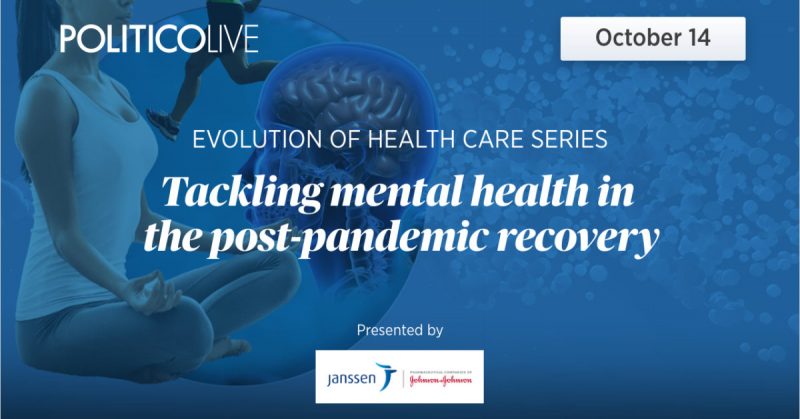Evolution of Health Care series: Tackling mental health in the post-pandemic recovery

Mental health services were already overstretched before the pandemic, with mental health problems affecting one in six people across the European Union, and yet spending on mental health is low and lags behind investment in other common chronic illnesses. With COVID-19 increasing risk factors associated with poor mental health — such as financial insecurity, fear and isolation — and impeding access to protective factors — like social connection or physical exercise — population mental health has “deteriorated significantly”, especially anxiety and depression according to the OECD.
The need for more concrete action to tackle the growing crisis in mental health is making itself dire. The prevalence of mental health issues is growing across the population, and is becoming especially concerning in young people where it is increasing at a rapid rate. Can the current crisis be an opportunity to tackle the longstanding gap between the burden of mental ill-health and the attention and money dedicated to tackling it?